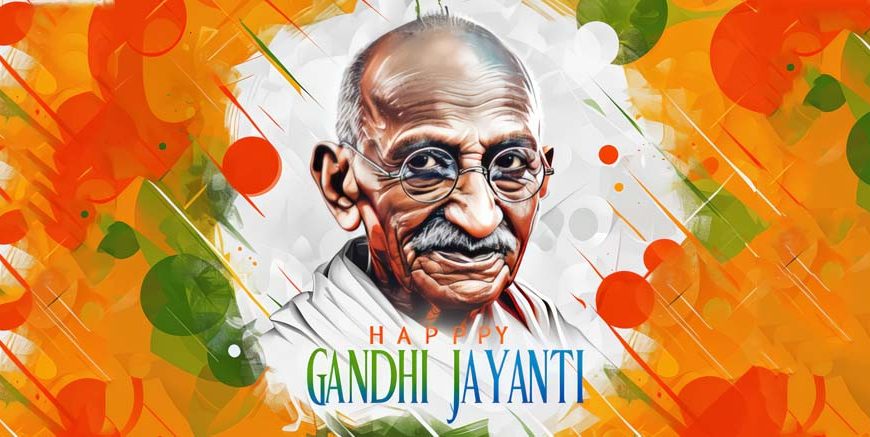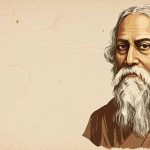Mahatma Gandhi, also known as the Father of the Nation, was one of the most influential leaders in India’s struggle for independence. His life was guided by the principles of truth, simplicity, and non-violence, which continue to inspire people around the world even today. Gandhi believed that freedom could be achieved without violence, and his leadership proved that courage, patience, and unity could move a nation forward.
For students, writing an essay on Mahatma Gandhi is not just an academic task but also a way to learn about values that build character and compassion. In this blog, we will share different formats of essays, from short essays to detailed versions, so that children of all ages can find something useful.
Mahatma Gandhi Short Essay
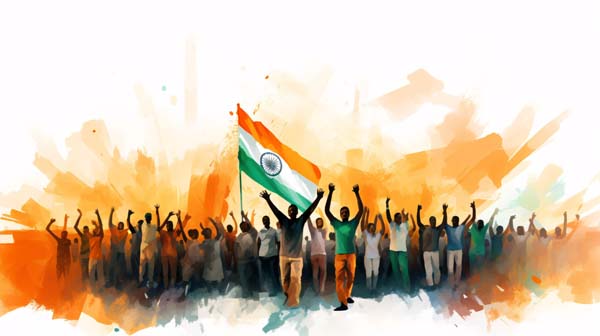
Mahatma Gandhi was born on 2nd October 1869 in Porbandar, Gujarat. He studied law in England and later went to South Africa, where he fought against racial discrimination. On returning to India, Gandhi led the freedom struggle using peaceful methods like marches, boycotts, and non-cooperation. People loved him for his simplicity and honesty. Gandhi taught us the power of truth and non-violence, and he played the biggest role in making India free.
Also Read: Freedom Fighters of India – Names and Their Contributions
10 Lines on Mahatma Gandhi
- Mahatma Gandhi was born on 2nd October 1869 in Porbandar, Gujarat.
- He is known as the Father of the Nation in India.
- He studied law in England and worked in South Africa.
- Gandhi believed in truth and non-violence.
- He started movements like Non-Cooperation and Quit India.
- Gandhi wore simple clothes made of khadi.
- He inspired millions of Indians to fight for freedom.
- The Dandi March was one of his most famous protests.
- He believed in equality and simple living.
- India became independent in 1947, thanks to his efforts.
Essays About Mahatma Gandhi
Mahatma Gandhi was a great leader who believed in non-violence and truth. He helped India gain independence from British rule. People respected him for his simplicity and kindness. His birthday on 2nd October is celebrated as Gandhi Jayanti every year.
1. Mahatma Gandhi Essay in English in 100 Words
Mahatma Gandhi played the most important role in India’s freedom struggle. He showed the world that independence could be achieved without violence. His philosophy of Satyagraha encouraged Indians to fight with truth and courage instead of weapons.
Movements like the Non-Cooperation Movement, the Dandi March, and the Quit India Movement weakened British control and gave Indians new hope. Gandhi united people of all religions, castes, and backgrounds in the fight for freedom. His leadership was based on simplicity and honesty, which made him loved by millions.
Without Gandhi’s vision, India’s independence may have been delayed or achieved with much greater violence. He proved that peace could be more powerful than war.
Also Read – Republic Day Essay For kids
2. Mahatma Gandhi Essay in English in 300 Words
Mahatma Gandhi was one of the greatest leaders in history. He was born on 2nd October 1869 in Porbandar, Gujarat. After completing his law studies in England, he went to South Africa, where he fought against racial discrimination. His experiences there shaped his ideas about justice, equality, and non-violence.
When Gandhi returned to India, he became the leader of the independence movement. He believed that freedom could not be won through violence but through truth and non-violence, which he called Satyagraha. He started many movements such as the Non-Cooperation Movement, the Civil Disobedience Movement, and the Quit India Movement. His famous Dandi March against the salt tax became a symbol of resistance against unfair laws.
Gandhi inspired millions of Indians to join the struggle for freedom. He wore simple clothes made of khadi, lived a simple life, and taught people to stand against injustice peacefully. His efforts and leadership finally led to India’s independence in 1947.
Today, Gandhi is remembered not only as the Father of the Nation but also as a symbol of peace and truth. His principles are still relevant in the modern world.
3. Mahatma Gandhi Essay in English in 500 Words
Mahatma Gandhi was born on 2nd October 1869 in Porbandar, Gujarat. His full name was Mohandas Karamchand Gandhi. After finishing his early education in India, he went to England to study law. Later, he travelled to South Africa, where he witnessed racial discrimination and fought against it. These experiences shaped his belief in non-violent protest.
In India, Gandhi became the leader of the freedom movement. He encouraged people to fight against British rule through peaceful means. His philosophy of Satyagraha, holding firmly to truth, was his biggest strength. Gandhi believed that violence only created hatred, but truth and non-violence could bring real change.
He launched important movements like the Non-Cooperation Movement in 1920, urging Indians to boycott British goods, and the Civil Disobedience Movement in 1930, where he led the Dandi March to protest against the salt tax. In 1942, Gandhi started the Quit India Movement, demanding the British leave India immediately. His leadership united Indians from all walks of life.
Gandhi also believed in equality. He worked to remove untouchability and uplift the poor. He wore khadi to promote self-reliance and encouraged Indians to support local goods instead of foreign products.
Finally, his tireless efforts led to India’s independence in 1947. Unfortunately, Gandhi was assassinated on 30th January 1948. However, his teachings of truth, non-violence, and simplicity continue to inspire people around the world.
Mahatma Gandhi was not only the Father of the Nation but also a teacher of humanity. His life reminds us that peace, kindness, and patience can make the world a better place.
Also Read: Gandhi Jayanti Speech in English for School Students
4. Mahatma Gandhi Essay in English in 1000 Words
Mahatma Gandhi, lovingly called Bapu, was one of the most remarkable leaders in world history. He is remembered as the Father of the Nation in India, but his influence travelled far beyond national boundaries. Gandhi’s life was guided by the principles of truth, non-violence, simplicity, and courage. His leadership in India’s freedom struggle was unique because he showed the world that wars can be fought without weapons. Instead, he used peace, patience, and moral strength as his greatest tools.
In this essay, we will explore his early life, education, role in South Africa, leadership in India’s freedom struggle, and his lasting legacy.
Understanding Mahatma Gandhi Better
Here are some important milestones from Gandhi ji’s life that you can narrate to your little ones.
Early Life and Education
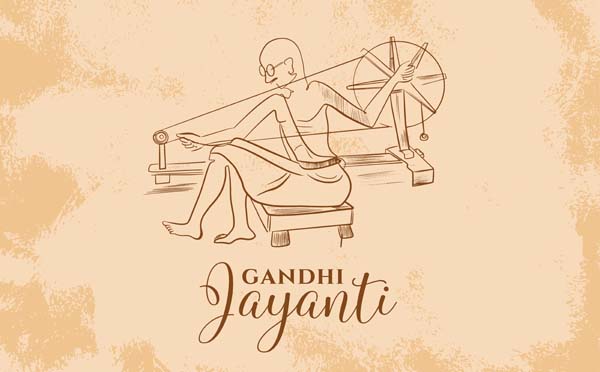
Mohandas Karamchand Gandhi was born on 2nd October 1869 in Porbandar, a small coastal town in Gujarat. His father, Karamchand Gandhi, was the Diwan (chief minister) of Porbandar, while his mother, Putlibai, was deeply religious and devoted. From his mother, Gandhi inherited the values of honesty, simplicity, and compassion.
As a child, Gandhi was shy and quiet, but he was curious and determined. His schooling began in Rajkot, and although he was not considered an extraordinary student, he was disciplined and truthful. At the age of 13, Gandhi was married to Kasturba, following the custom of child marriage at that time.
Later, Gandhi travelled to London to study law. There, he faced challenges adjusting to a new culture but remained true to his values. He became a barrister in 1891 and returned to India.
Struggles in South Africa
Gandhi’s life took a turning point when he accepted a job in South Africa. While working there, he faced racial discrimination. On one occasion, he was thrown out of a train despite having a valid ticket, just because of his skin colour. These humiliating experiences changed Gandhi forever.
Instead of responding with anger or violence, Gandhi chose to resist injustice peacefully. He started fighting for the rights of Indians in South Africa. He developed the philosophy of Satyagraha, which means holding firmly to truth. This was the beginning of his lifelong journey of using truth and non-violence as weapons against oppression.
Return to India and Rise as a Leader
In 1915, Gandhi returned to India. He was deeply saddened by the poverty and suffering of people under British rule. Instead of jumping into politics directly, Gandhi spent time travelling across villages, understanding the struggles of ordinary people.
Soon, he became the leader of the Indian National Congress. What made Gandhi different from other leaders was his belief that the fight for freedom should be based on peace and non-violence. He encouraged Indians to boycott British goods, spin their own clothes using khadi, and unite against injustice.
Major Movements Led by Gandhi
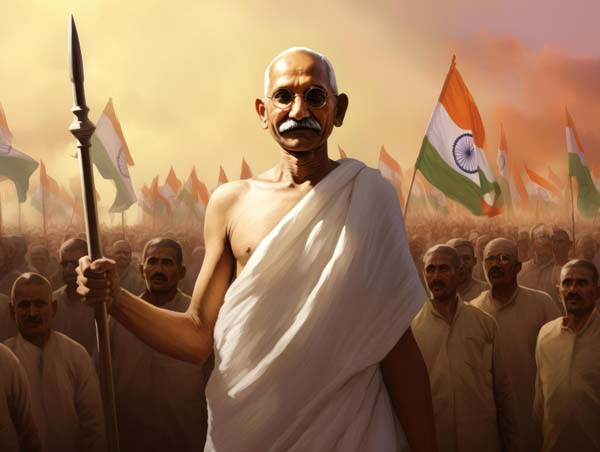
Gandhi launched several movements that brought Indians together against British rule:
- Champaran Movement (1917): Gandhi helped farmers in Bihar who were forced to grow indigo under unfair conditions. His peaceful protest succeeded, making him a people’s leader.
- Non-Cooperation Movement (1920): Gandhi urged people to boycott British schools, courts, and goods. This created a wave of unity and self-reliance across India.
- Civil Disobedience Movement (1930): The famous Dandi March was part of this movement. Gandhi walked 240 miles to make salt, challenging the British salt tax. It was a symbol of courage and peaceful resistance.
- Quit India Movement (1942): Gandhi demanded the British “Quit India” immediately. This movement became one of the strongest calls for independence and inspired Indians to fight unitedly.
Philosophy of Truth and Non-Violence
At the heart of Gandhi’s leadership were his principles:
- Truth (Satya): Gandhi believed truth was the ultimate power. He encouraged people to always remain truthful, even in difficult situations.
- Non-Violence (Ahimsa): Gandhi strongly opposed violence. He believed hatred and anger only created more suffering, whereas love and peace could bring lasting solutions.
- Simple Living: Gandhi lived a very simple life, wearing clothes made of khadi and eating vegetarian food. He wanted Indians to embrace simplicity and self-reliance.
These values were not just political tools but also a way of life.
Gandhi’s Role in India’s Independence
The role of Mahatma Gandhi in India’s freedom struggle was unmatched. He gave Indians a new way of fighting oppression, without weapons. His leadership united millions of people, regardless of caste, religion, or background. Gandhi believed that every person, whether rich or poor, had a role to play in the freedom movement.
His peaceful protests gained international attention. Leaders from around the world admired his courage and his methods. When India finally gained independence on 15th August 1947, it was seen as a victory of truth and non-violence. Gandhi had proved to the world that freedom could be achieved through peace.
Legacy of Mahatma Gandhi
Sadly, Mahatma Gandhi was assassinated on 30th January 1948. His death was a great loss to India and the world. Yet, his ideas did not die with him. Gandhi’s principles of truth and non-violence inspired many great leaders such as Martin Luther King Jr. in the United States and Nelson Mandela in South Africa.
Even today, Gandhi’s teachings remain relevant. In a world full of conflicts, his message of peace reminds us that violence is never the answer. His belief in equality guides us towards building a fairer society. His commitment to simplicity inspires us to live with less and care more for others.
Also Read: 7 Meaningful Gandhi Jayanti Activities for Kids
Relevance of Gandhi’s Teachings Today
Children and adults alike can learn valuable lessons from Gandhi’s life:
- Always speak the truth, no matter how difficult.
- Solve problems peacefully instead of with anger.
- Respect all people, regardless of caste, religion, or background.
- Value simplicity and hard work.
- Stand up against injustice with courage.
By following these values, we can create a better, kinder, and more united world.
Mahatma Gandhi was more than a freedom fighter; he was a teacher of humanity. From his childhood in Porbandar to leading India’s independence movement, every step of his life was dedicated to truth, non-violence, and justice. His philosophy proved that peaceful methods are stronger than any weapon.
Remembering Gandhi is not just about celebrating history. It is about learning lessons that are still meaningful today. Whether it is standing up for what is right, living simply, or respecting others, Gandhi’s values can guide us in our daily lives.
Mahatma Gandhi remains a shining light for India and the world. His life reminds us that one person, armed with truth and peace, can change the course of history.
Why Mahatma Gandhi’s Teachings are Still Relevant Today
Even in today’s world, Gandhi’s values remain important. In times of conflict, his principle of non-violence teaches us that peace is always the best solution. His belief in truth reminds us to be honest and responsible. His ideas of equality and simplicity can guide us in building a fairer and kinder society.
Conclusion
Mahatma Gandhi was not just a leader of India but a leader of humanity. His life was a message of peace, truth, and courage. From a few lines to detailed essays, children can learn that Gandhi’s values are timeless. Writing an essay on Mahatma Gandhi helps us remember his contribution to India and the world. At EuroKids Blogs, we regularly bring engaging, age-appropriate content to support your child’s learning journey. From essays and stories to educational tips and activities, we make learning simple, fun, and meaningful.
If you are looking to give your child the right foundation for a brighter future, visit EuroKids. With a safe environment, holistic learning approach, and emphasis on values, EuroKids ensures your child grows not just academically but also emotionally and socially.
Related Blogs:
- Inspirational Historical Figures for Children to Learn About: Children love stories of heroes who changed the world. This blog introduces young learners to great historical figures whose courage, wisdom, and determination can motivate them to aim high and follow strong values, just like Gandhi’s life lessons.
- Awesome and Effective Essay Writing Tips for Kids: Writing essays becomes much easier when kids have the right tools and strategies. This blog offers simple, effective, and enjoyable tips to help children express themselves clearly and confidently in their school essays and creative writing tasks.
- The Crucial Role of Pre-Writing Skills in Preschoolers – Before children begin formal writing, they need strong pre-writing skills. This blog explains why these skills matter, the benefits they bring, and fun activities that parents can try at home to prepare preschoolers for confident learning.





